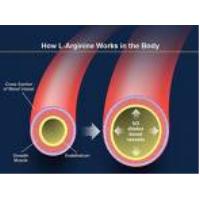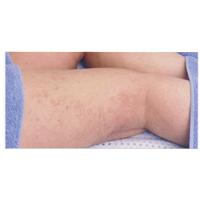An injectable drug, Repatha, has been shown to dissolve damaging arterial plaques in a new patient trial.
Plaque deposits are responsible for clogging up arteries and contribute to blood clots – a major cause of heart attacks. Clots block the blood supply to the heart, leaving the crucial cardiac muscles starved of oxygen. Therefore treatments which can stop or reverse the build up of atheromas, cut heart attack risk and save lives.

Data from a trial of 968 patients, was unveiled at the recent American Heart Association’s Scientific Sessions meeting in New Orleans, and showed that 64% of those treated with both Repatha and statins saw their atheromas shrink over 18 months.
But of the statins group only 48% experienced shrinkage and to a far smaller degree. Whereas the average patient treated with Repatha had a shrinkringe of plaque of 5.8 cubic mm, more than six times more than the 0.9 cubic mm shrinkage seen among those treated with statins alone.
Researcher Dr Stephen Nicholls, of the University of Adelaide, said the plaque reversal was ‘really quite profound’ – and was more than enough to stop a heart attack.
‘It is the difference in disease progression between those who have an event and those who don’t,’ he told the meeting.
Coronary heart disease, in which the major arteries become clogged, affects more than 2.3million people in Britain, and 69,000 die from heart attacks every year.
US company Amgen which makes the drug hopes that an even larger trial which completes next year , of nearly 30,000 people, will prove that the medicine does stop heart attacks.
Repatha is already available in the UK on the NHS and an estimated 325,000 people in the UK are already eligible to be prescribed it. That approval was made on the basis of trials which showed they reduced cholesterol by about 60 per cent more than statins.
Repatha is one of the first new cholesterol treatments developed since statins launched some 30 years ago – offer the first real alternative for people who cannot cope with the brutal muscle aches that sometimes accompany statins, or for whom statins simply do not work.
They have been approved in the UK for two main groups – those with a genetic condition which means they have dangerously high cholesterol, and people with heart disease who cannot cope with the side effects of statins.
But the new findings suggest the drugs could benefit hundreds of thousands more people – with up to 1.5million people potentially benefitting if the guidelines are changed.
The researchers, led by the Cleveland Clinic in Ohio, found patients were still seeing their plaques shrink even when their cholesterol levels had reached very low levels – about a tenth of the level at which British patients are eligible for the drug.
Repatha, which is also known as evolocumab has so far been given to only handfuls of NHS patients, mostly because the of the cost. It costs about £4,400 per patient per year, although the NHS has agreed an undisclosed discount on this price.
Statins are incredibly cheap in comparison, costing the NHS about £20 a year per patient.
But doctors are more likely to start prescribing the drugs based on the new findings, which show for the first time that it has a clinical effect that extends beyond simply lowering cholesterol.




new.jpg)